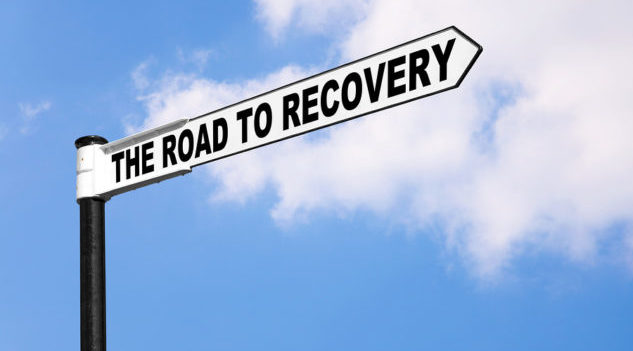How small businesses can leverage the return of consumer confidence in the economy.
Consumer confidence is at a 10-year high, with the latest Westpac-Melbourne Institute Index of Consumer Sentiment increasing by 6.2 per cent to 118.8 points in April. When consumer confidence is high it quite simply means that consumers are willing to spend their money. That’s great news for business.
It’s come as a surprise to economists, who were expecting more subdued consumer confidence results off the back of the end of JobKeeper. It appears the unexpectedly strong labour market has driven the surge, with the unemployment rate decreasing to 5.5 per cent in April.
Following more cautious spending over the last year or so, many consumers have more cash than usual to burn. In fact, Treasury reports that Australians have saved $200 billion throughout the pandemic. Many cuts to spending were borne of necessity, with lockdowns and border closures preventing people from spending on the things they usually would. But consumers were also extra cautious with their spending as a way to safeguard against potential job losses and economic uncertainty. Now that we have more certainty in the market, consumers are ready to spend again.
“With the economy in recovery and consumer confidence stronger than ever, businesses can establish more aggressive goals.”
For small-business owners, the favourable conditions are a welcome surprise. It doesn’t feel like all that long ago that many businesses were experiencing the most challenging period in their history, amid lockdowns, COVID-19 restrictions and plunging consumer confidence.
So, how can small businesses ride the wave of economic recovery and take advantage of growing consumer confidence?
Review your business goals
If, like many other small businesses, your business goals within the last year or so have largely been focused on survival, you’re not alone. With so much uncertainty in the economy, many businesses have found it more difficult to plan and paused any ambitious growth goals they may have set prior to the pandemic.
Now, with the economy in recovery and consumer confidence stronger than ever, businesses can establish more aggressive goals with much more confidence. This might include expanding into new markets, growing headcount, growing revenue, adding additional revenue streams, growing market share or increasing profitability.
More ambitious business goals like these are far more realistic against the current backdrop of strong consumer confidence, lower unemployment and more economic certainty. It’s a unique opportunity to chase big goals while the conditions are ripe for it.
Win new customers and nurture existing customers
With consumers willing to spend, now is an excellent time to invest in winning more customers through marketing and business development activity. Make sure you’re also focused on conversion so that you’re seeing strong ROI. It’s a good time to refine your sales process to ensure you’re maximising customer acquisition. Many organisations adopted new online practices for engaging with clients during COVID-19 such as conducting webinars or communicating via Zoom, and continuing to incorporate these practices into your business could prove fruitful.
At the same time, it’s important you don’t forget to also continue to nurture the customers you already have, especially those who have remained loyal throughout the last year or so. Customer retention is as important now as it was during the height of the pandemic. With consumers more willing to spend, you may find opportunities to upsell existing customers to additional products or services.
Create a cash reserve and pay down debt
If your business has taken a more cautious approach to spending throughout the pandemic while benefiting from government stimulus, you might find you’re now in a stronger financial position.
If you have a surplus of cash, now is a good time to use it to pay down debt or get on top of any outstanding liabilities such as unpaid ATO bills. Additional cash could also be used to build up your cash reserves and create a strong financial foundation for the future.
Remain cost conscious
Many small businesses optimised their costs throughout the worst of the pandemic, simply to survive. They cut discretionary spending such as entertainment and gifts, reduced headcount, automated or outsourced functions to reduce labour costs or consolidated spending to create efficiencies.
If this was the case for your business, you may now be ready to increase your spending in order to achieve your strategic goals. Before simply returning to your old way of spending, it’s important to take this opportunity to audit which costs will give your business the desired ROI and which you should keep low.
For example, it may make sense to increase your investment in marketing to take advantage of the return of consumer confidence in the economy and generate new leads. Or you might opt to invest in a thank you gift to customers or staff for their loyalty or contribution over the last year or so.
On the other hand, you might find other reductions in non-essential spending can be retained, at least for the short- to medium-term. These might include printing costs, office costs, events or entertainment.
With any luck, your more cost-conscious approach will reap better profitability outcomes for your business going forward.
Invest in the business
When economic conditions are strong, your business has ambitious growth goals and you have cash reserves, it’s an excellent time to invest in additional headcount, equipment, technology, machinery, vehicles or other assets.
Not only is this a smart way to leverage any additional cash in your business and set your business up for growth, you will also benefit from tax deductions on assets. The government in the 2021–22 budget has extended the instant asset write-off scheme for another year. This means that businesses with a turnover of up to $5 billion can claim an immediate deduction for business assets purchased before 30 June 2023.
Invest in your personal wealth goals
When was the last time you focused on your personal wealth goals? With the day-to-day demands of business, especially during challenging periods, it can be easy to forget to focus on how to best leverage the income from your business into personal wealth. What’s the point of working so hard in your business, if you’re not seeing the personal rewards?
Make sure you have the right safety nets in place from an insurance perspective. If you don’t yet have a succession plan in place, now is a good time to put this in force. Having an up-to-date estate plan is also important to ensure your wealth is distributed according to your wishes. You can also make extra concessional contributions to your super under carry-forward rules, which allow you to access unused concessional cap amounts from previous years to make extra payments without paying extra tax.
With all the money flowing through our financial systems, it’s never been more important to make sure your business or investment portfolio is working for you. It may be the right time to invest in the business, establish a SMSF or upgrade your home. With the sharemarket surging and property markets around the country booming, now could be the ideal time to create personal wealth by increasing your personal investment portfolio. Establishing an investment portfolio outside of your business is a good way to spread your risk and build long-term wealth. Talk to your financial advisor about your business and personal wealth goals, and how you can best achieve them.
This article first appeared in issue 33 of the Inside Small Business quarterly magazine












